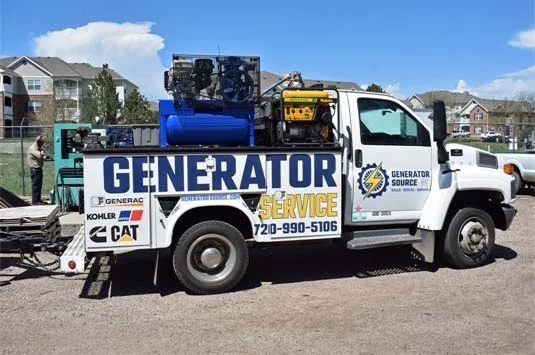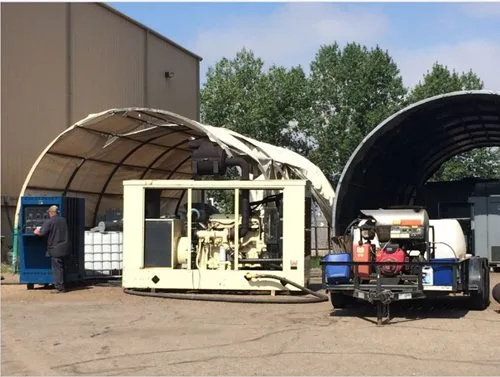Diesel Generator Maintenance
Diesel generator sets—used for either prime or backup (emergency) power—must be regularly maintained to ensure they provide reliable, quality power throughout their service life.
- Larger Companies: May require an in-house engineer to maintain gensets.
- Smaller Companies or Backup Users: Often establish maintenance contracts with generator dealers or electrical contractors.
In either case, the life cycle of power generators is well-documented, making routine maintenance straightforward. Following the manufacturer’s recommended maintenance schedule is the best practice for ensuring long-term reliability.
Predictive Maintenance and Manufacturer Plans
Over time, the widespread use of generators has provided valuable data to predict when certain components will fail or need servicing. Manufacturers typically provide reliable maintenance schedules that can be followed by:

- Local generator dealers
- Electrical contractors or engineers experienced in power generation
Adhering to these schedules ensures:
- Maximum Service Life: Keeping generators operational for longer periods.
- Reliability on Demand: Ensuring functionality during power outages.
Manufacturer Maintenance Programs
Many major generator manufacturers offer maintenance plans that can service their own generators and other industry-leading brands. Below are two popular programs:
Responsibilities of Maintenance Contractors
The primary responsibilities of maintenance contractors include:
- Inspecting generator systems
- Analyzing technical data provided by manufacturers
- Maintaining records and logs
- Implementing safety precautions as recommended by manufacturers
Scheduled Maintenance Steps
Key tasks performed during scheduled maintenance include:
- Timely replacement or upgrading of worn-out components
- Checking and replenishing fluid levels
- Inspecting batteries and cleaning connections
- Conducting load bank testing
- Verifying control panel readings and indicators
- Replacing fuel and air filters
Benefits of Routine Maintenance:
Small, regular investments in maintenance help avoid expensive repairs or complete genset replacements in the future.
Maintenance Logs and Data Analysis
For effective routine maintenance:
- Action Logging: Record each maintenance action along with inspection dates and hour meter readings.
- Data Comparison: Compare readings over time to identify irregularities.
- Fault Detection: Address any unusual variations in performance parameters promptly.
Load Testing and Component Checks
Regular load testing of automatic transfer switches ensures electrical and mechanical integrity during mechanical transfer operations. Other periodic checks include:
- Starting and timing relays
- Start signal continuity
- Utility phase sensing
Preventative Maintenance Benefits
Preventative maintenance provides:

- Uninterrupted Power Supply: Ensures systems operate when needed.
- Emergency Priority Service: Access to quicker support during emergencies.
- Discounted Service Rates: Cost savings on additional support or repairs.
- Peace of Mind: Maintenance providers track service schedules and perform visits at regular intervals.
By entering a maintenance contract, businesses can rely on consistent and reliable service, ensuring long-term efficiency for their generators.